

Tao Te Ching
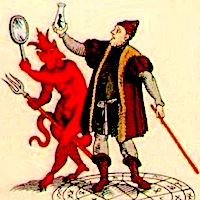
Soul-Selling, Corruption
Goethe’s novel, Faust focused the ancient discussion about selling our souls for material gains into a modern and vivid context. At the heart of our fundamental paradox—the pitting our values and belief systems against our survival and success—everyone must struggle with this dilemma, acquiesce or ignore it. The multiple temptations of corruption brings obvious gains in each of our four most common human motivations—pleasure, power, fame, and fortune. These payments in slivers of our souls, however, become costly in terms of happiness, goodness, and integrity. The depth of our allegiance to these kinds of deception quickly rise to the surface of awareness when we try to do something anonymously, when we help someone who cannot give anything in return, when no one can see or know. Although probably the least common kind of human activity, it may epitomize the essence of integrity.
Most of us, most of the time stay busy trying to impress people looking for approval, praise and fame. This enslaves and sells our souls to the tyrants of public opinion, the status quo, and to external personal whim. As an antidote to this, the cloak of anonymity opens wide doors of personal expression, creativity, and innovation. In ancient times, perhaps less personal ego fostered this approach, perhaps names were just eroded away by time as is surely the case with many of the quotations that comes to us through the annals of history, perhaps people needed to avoid religious or political persecution. The venerable tradition of using pseudonyms exemplifies both the need and benefit of freeing ourselves from the narrow boxes defined by our personal histories.
Quotes (90)

“When leaders are convinced by concepts, corruption, confusion, and conflict reign. When instead they remain unconvinced and open, blessings and goodness spread.”

“I do not wish to sell my soul to God, to what all you others call God; I do not wish to sell my soul to the devil, to what all you others call the devil. I do not wish to sell myself to anyone. I am free! Happy the man who escapes the claws of God and the devil. He, and he alone, is saved.”
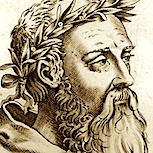
“The struggle against desire is difficult, because it must be purchased at the soul's expense.”
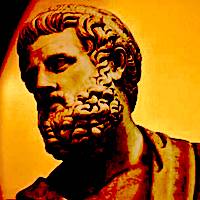
“For money you would sell your soul… Of all the foul growths current in the world the worst is money. It sacks cities, perverts minds, routs out men from their homes leading the astray, sets them on every work of wickedness and crime.”
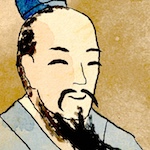
“Do not let the artificial obliterate the natural; do not let will obliterate destiny; do not let virtue be sacrificed to fame”

“If a woman calls you to sleep with her and you do not go, you are damned. God does not forgive this. You'll be placed with Judas at the very bottom of hell.”

“For what shall it profit a man, if he shall gain the whole world, and lose his own soul?”
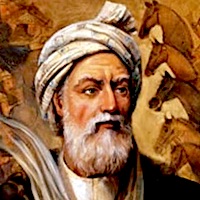
“And for the sake of an unworthy throne
You let the devil claim you for his own.”
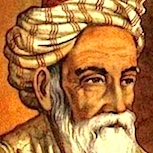
“Indeed, the Idols I have loved so long
Have done my Credit in Men's Eye much wrong;
Have drown'd my Honor in a shallow Cup,
And sold my Reputation for a Song.”

“Sedentary culture is the goal of civilization. It means the end of its lifespan and brings about its corruption. ”
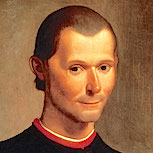
“The nearer people are to the Roman Church, the less religious they are... Possibly the Christian religion would have been entirely extinguished by its corruption had not St Francis restored it to its original principles”

“It profits a man nothing to give his soul for the whole world... but for Wales?”

“A million drilled assassins go from one end of Europe to the other murdering and robbing with discipline in order to earn their bread, because there is no more honest occupation”

“there is no form of government but what may be a blessing to the people, if well administered,,, [that it] can only end in despotism when the people shall become so corrupted as to need despotic government, being incapable of any other.”
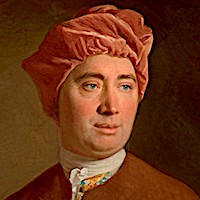
“Nothing appears more surprising to those who consider human affairs with a philosophical eye than the easiness with which the many are governed by the few, and the implicit submission with which men resign their own sentiments and passions to those of their rulers.”
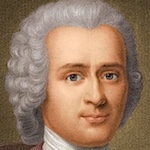
“Man was a 'noble savage' when in the state of nature, before the creation of civilization. He has been corrupted by the social interdependence of society.”
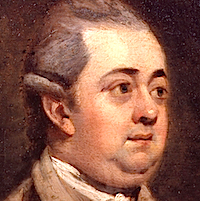
“Corruption: the most infallible symptom of constitutional liberty.”
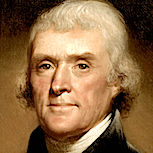
“Either force or corruption has been the principle of every modern government... This I hope will be the age of experiments in government, and that their basis will be founded on principles of honesty, not of mere force. We have seen no instance of this since the days of the Roman republic, not do we read of any before that.”
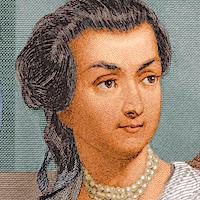
“I am more and more convinced that man is a dangerous creature and that power, whether vested in many or a few, is ever grasping, and like the grave, cries, 'Give, give.'”
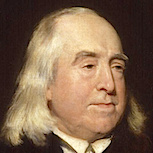
“. . . in no instance has a system in regard to religion been ever established, but for the purpose, as well as with the effect of its being made an instrument of intimidation, corruption, and delusion, for the support of depredation and oppression in the hands of governments.”

“It is impossible to rise to freedom, from the midst of corruptions, without strong convulsions. They are the salutary crises of a serious disease.”

“Getting and spending, we lay wast our powers
Little we see in Nature that is ours
We have given our hearts away, a sordid boon!”

“It is quite a piece of folly to sacrifice the inner for the outer man, to give the whole or the greater part of one's quiet, leisure, and independence for splendor, rank, pomp, title and honor This is what Goethe did. My good luck drew me quite in the other direction.”

“Deeply rooted in human nature is the mistaken belief that the ultimate goal for all our effort is gaining greater respect from other people… set limits on this great weakness and susceptibility to public opinion.”
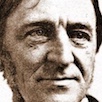
“Live no longer to the expectation of those deceived and deceiving people with who we converse... I must be myself. I cannot break myself any longer for you, or you... I cannot sell my liberty and my power, to save their sensibility.”
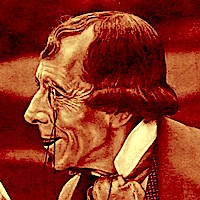
“In politics, there is no honor... The world is weary of statesmen whom democracy has degraded into politicians.”
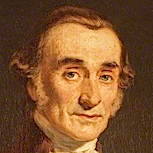
“Nobody blamed the credulity and avarice of the people, – the degrading lust of gain, which had swallowed up every nobler quality in the national character… These things were never mentioned.”
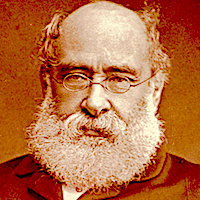
“Pride of place, and the power of living well in front of the world’s eye, are dear to us all; — are, doubtless, intended to be dear. Only in acknowledging so much, let us remember that there are prices at which these good things may be too costly.”
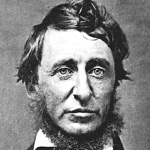
“The rich man is always sold to the institution which makes him rich. Absolutely speaking, the more money, the less virtue”
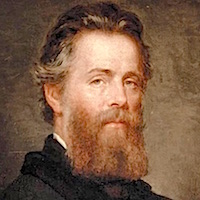
“sin that pays its way can travel freely, and without a passport; whereas Virtue, if a pauper, is stopped at all frontiers.”
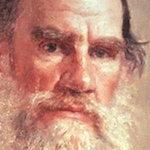
“most men—including those at ease with problems of the greatest complexity—can seldom accept even the simplest and most obvious truth if it be such as would oblige them to admit the falsity of conclusions which they have delighted in explaining to colleagues, which they have proudly taught to others, and which they have woven, thread by thread, into the fabric of their lives.”

“[We do not]... blame, but rather pity, in our innermost heart, the 'wise men' of our age for trying to carry out the only policy that will keep them on the pinnacle of their 'authority'; as they could not, if even they would, act otherwise and preserve their prestige with the masses, or escape from being speedily outcast by their colleagues.”
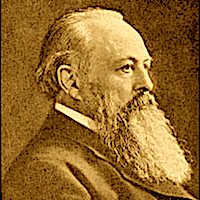
“Great men are almost always bad men, even when they exercise influence and not authority; still more when they superadd the tendency of the certainty of corruption of authority.”
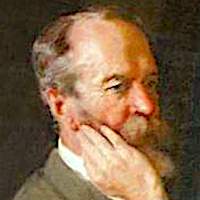
“[We] must all work to keep our precious birthright of individualism and freedom from these institutions (church, army, aristocracy, royalty). Every great institution is perforce a means of corruption.”
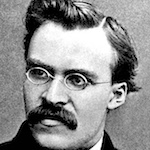
“The surest way to corrupt a youth is to instruct him to hold in higher esteem those who think alike than those who think differently.”
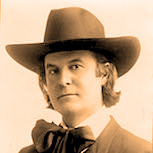
“the worst part about making a soldier of a man is not that a soldier kills, but that the soldier loses his own soul.”
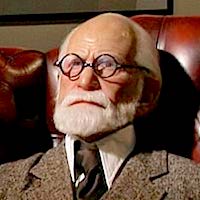
“Men measure by false standards: everyone seeks power, success, riches for himself and admires others who attain them, while under-valuing the truly precious things in life.”
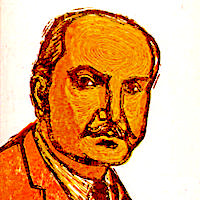
“Since barbarism has its pleasures, it naturally has its apologists.”

“A thousand reforms have left the world as corrupt as ever, for each successful reform has founded a new institution, and this institution has bred its new and congenial abuses.”
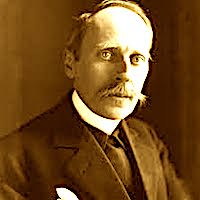
“Most men die at twenty or thirty; thereafter they are only reflections of themselves: for the rest of their lives they are aping themselves, repeating from day to day more and more mechanically and affectedly what they said and did and thought and loved when they were alive.”
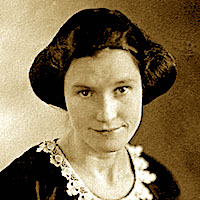
“It was a Roman [Horace] who said it was sweet to die for one's country. The Greeks never said it was sweet to die for anything. They had no vital lies.”
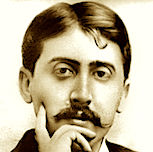
“Love's greatest deceit is that—replacing the real woman—it makes us toy with a doll that lives in our brain, the only woman whom we have always at hand and can ever really possess. And gradually, to our own sorrow, we force the real woman to resemble this facetious creation.”

“Within the herd we are more friendly to each other than are many species of animals, but in our attitude toward those outside the herd, in spite of all that has been done by moralists and religious teachers, our emotions are as ferocious as those of any animal, and our intelligence enables us to give them a scope which is denied to even the most savage beast.”

“Nietzsche had been on my program for some time, but I hesitated to begin reading him because I felt insufficiently prepared... I was held back by a secret fear that I might perhaps be like him... In spite of these trepidations, I finally resolved to read him and I was carried away by enthusiasm... He was moved by the childish hope of finding people who would be able to share his ecstasies... But he found only educated Philistines. That was the reason for the bombastic language—all a vain attempt to catch the ear of a world which had sold its soul for a mass of disconnected facts.”

“For what I always hated and detested and cursed above all things was this contentment, this healthiness and comfort, this carefully preserved optimism of the middle classes, this fat and prosperous brood of mediocrity.”
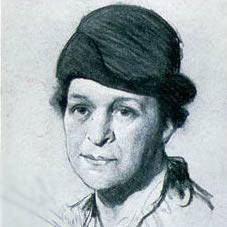
“If this robot-man can release us from chores like turning off switches -- all right, but let him release us to be human beings and let us not develop a race who are going to be patterned after him.”
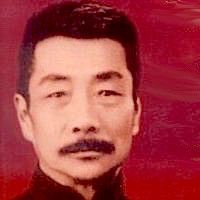
“By the time a great man becomes fossilized and is worshiped as great, he is already a puppet.”

“Jesus said that it is easier for a camel to go through the needle's eye than for a rich man to enter into the kingdom of God, and had to go through Gethsemane. Now the rich men of the West are worshiping Jesus, and it is the poor who are going through Gethsemane.”
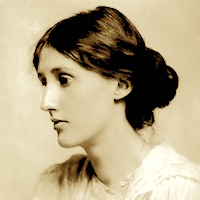
“The eyes of others our prisons; their thoughts our cages.”
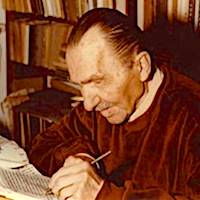
“Observing how my old friends had settled in, I was seized with terror. I vowed never to shut myself up inside the four walls of an office, never to come to terms with the good life, never to sign an agreement with necessity.”

“Every solution bares a new problem. The progress of science has brought new evils with new boons, and its latest victory has given frail minds the power to destroy Western civilization... I morn when I see so much scientific genius dedicated to the art of massacre, so little to the organization of peace... Meanwhile I breathe air and drink water and eat food polluted by the products of science: by the burning of fuels in factories and cars by industrial waste poured into our rivers and seas, by dangerous chemicals used in growing or processing foods or disguising their decay.”
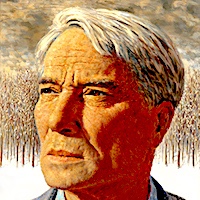
“They don’t ask much of you. They only want you to hate the things you love and to love the things you despise. (June 1960)”
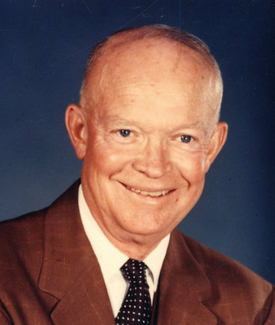
“Every gun that is made, every warship launched, every rocket fired, signifies in the final sense a theft from those who hunger and are not fed, those who are cold and are not clothed. This world in arms is not spending money alone. It is spending the seat of its laborers, the genius of its scientists, the houses of its children.”

“Such men as this puppet are our worst and our true enemies, for they have betrayed themselves and us in them. The enemy from outside is a disease but the puppets are our own weakness”
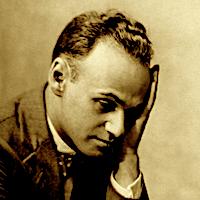
“The poor have given to the rich palaces and yachts, an almost infinite freedom to indulge their doubtful taste... under which have been hidden the excess labor and extravagant misery of the poor.”

“[We are] victims of the same twentieth-century plague. Not the Black Death, this time; the Gray Life.”
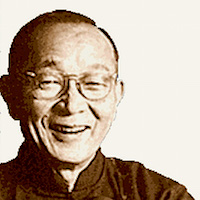
“The medieval theologians gave us, on rather dogmatic grounds, two things, a 'soul' and 'original sin'... without a soul there would be nothing to save and without original sin there would be no need of saving it.”
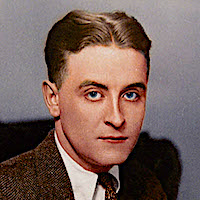
“Once one is caught up into the material world not one person in ten thousand finds the time to form literary taste, to examine the validity of philosophic concepts for himself, or to form what, for lack of a better phrase, I might call the wise and tragic sense of life.”
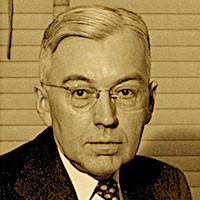
“Magazine editors have 'policies' and 'interests.' So have I, and I have never considered dropping mine to take up those of somebody else.”
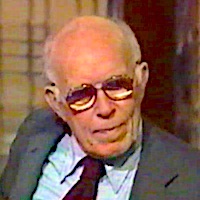
“Man will survive as a species for one reason: He can adapt to the destructive effects of our power-intoxicated technology and of our ungoverned population growth, to the dirt, pollution and noise of a New York or Tokyo. And that is the tragedy. It is not man the ecological crisis threatens to destroy but the quality of human life.”
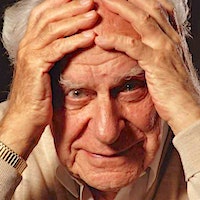
“Hitler succeeded in degrading the moral standards of our Western world, and that in the world of today there is more violence and brutal force than would have been tolerated even in the decade after the first World war. And we must face the possibility that our civilization may ultimately be destroyed by those new weapons which Hitlerism wished upon us... for no doubt, the spirit of Hitlerism won its greatest victory over us when, after its defeat, we used the weapons which the threat of Nazism had induced us to develop.”
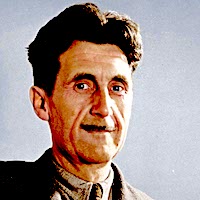
“But if thought corrupts language, language can also corrupt thought... the English language becomes ugly and inaccurate because our thoughts are foolish, but the slovenliness of our language makes it easier for us to have foolish thoughts... the process is reversible”
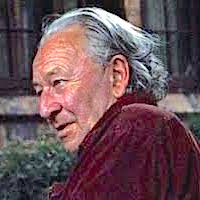
“What is true is that the idea of power corrupts. Power corrupts most rapidly those who believe in it, and it is they who will want it most. Obviously, our democratic system tends to give power to those who hunger for it and gives every opportunity to those who don’t want power to avoid getting it. Not a very satisfactory arrangement if power corrupts those who believe in it and want it.”
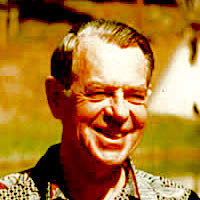
“Darth Vader has not developed his own humanity. He's a robot, a bureaucrat living not in terms of himself but in terms of an imposed system. This is the threat to our lives that we all face today... How do you relate to the system so that you are not compulsively serving it.”
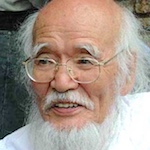
“Nature as grasped by scientific knowledge is a nature which has been destroyed, it is a ghost possessing a skeleton, but no soul.”
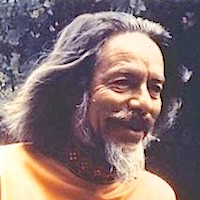
“We are therefore a civilization that suffers from chronic disappointment—a formidable swarm of spoiled children smashing their toys.”
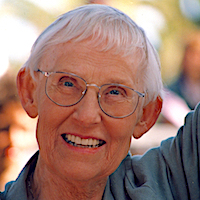
“Often, we would rather be safe than free... Practice is about going into darkness. But we're only interested in looking at life in a way that doesn't disturb us... We want to stay where we're used to... looking at the surface of things.”
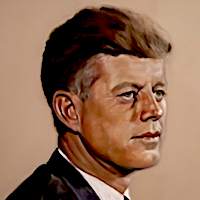
“Only the strength and progress and peaceful change that come from independent judgment and individual ideas—and even from the unorthodox and the eccentric—can enable us to surpass that foreign ideology that fears free thought more than it fears hydrogen bombs… We can compromise our political positions, but not ourselves.”
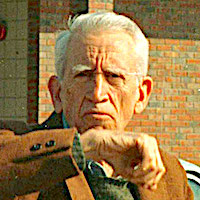
“you're beginning to give off a little stink of piousness. God damn it, there isn't any prayer in any religion in the world that justifies piousness.”

“When a man finally realizes that he has taken a path without heart, that the path is ready to kill him; at that point, very few men can stop to deliberate, and leave that path.”
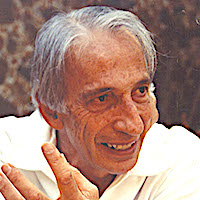
“The latent function of schooling, the hidden curriculum, forms individuals into needy people... Our society doesn't only produce artifact things, but artifact people...How did it come about that such a crazy process like schooling would become necessary?... The current search for new educational funnels must be reversed into the search for their institutional inverse: educational webs which heighten the opportunity for each one to transform each moment of his living into one of learning, sharing, and caring.”
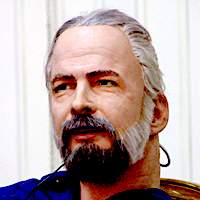
“Appeals to the base lusts that hide in everyone no matter how respectable on the surface. Yes, the novelist knows humanity, how worthless they are , ruled by their testicles, swayed by cowardice, selling out every cause because of their greed”
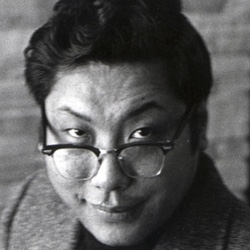
“The great setting sun of the West has provided us with beautiful, comfortable conditions for living our life, like central heating, air-conditioning, taxicabs, and numerous other conveniences. But that setting-sun approach has provided us purely with a comfortable way to die.”
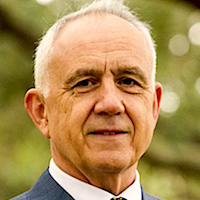
“Chinese leaders used 5 strategies to win over ‘barbarians’ into the ‘true civilization:’ luxurious clothes to corrupt their eyes, delicious food to corrupt their mouths, beautiful women and music to corrupt their ears; massive buildings, slaves, and granaries to corrupt their appetites; and finally, wine and feasts to corrupt the minds of their leaders.”

“she now saw iguanas all over Washington, people who sat sunning on their rocks, destroying anything or anybody who came within tongue's reach, but doing nothing.”
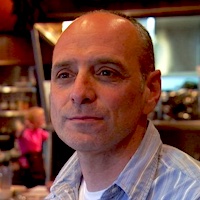
“Since 1980, the tonnage of potatoes grown in Idaho has almost doubled, while the average yield per acre has risen by nearly 30 percent. But the extraordinary profits being made from the sale of french fires have barely trickled down to the farmers.”
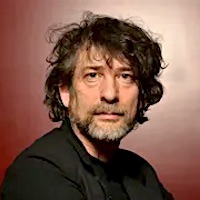 “In the end, all gods fall victim to their thirst for worship.
“In the end, all gods fall victim to their thirst for worship.”
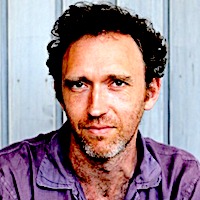
“The most emotionally corrosive form of regret occurs when we fail to take action on something that matters deeply to us.”
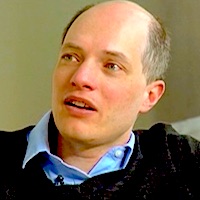
“the finest thing about betrayal and jealousy—it's ability to generate the intellectual motivation necessary to investigate the hidden sides of others.”
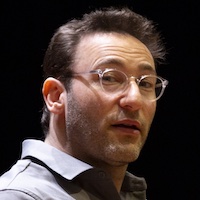
“after Friedman's 1970 article executives and directors... became excessively focused on shorter-and-shorter-term gains to the benefit of fewer and fewer people.... in large part due to Friedman's ideas... in 1978, the average CEO made approximately 30 times the average worker's salary and by 2016, the average had increased over 800% to 271 times the average worker's pay... at a rate 70% faster than the stock market!”
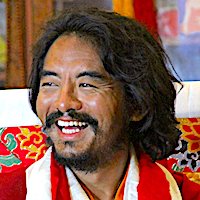
“Who develops industries that fill the air and water with toxic waste? How did we humans become immune to the plight of refugees, or hardened to the suffering of animals raised to be slaughtered?”
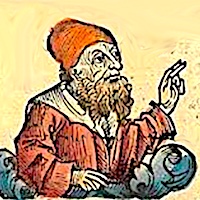

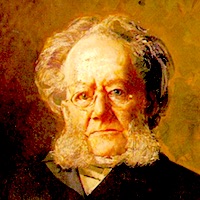



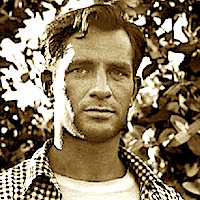
Comments (0)